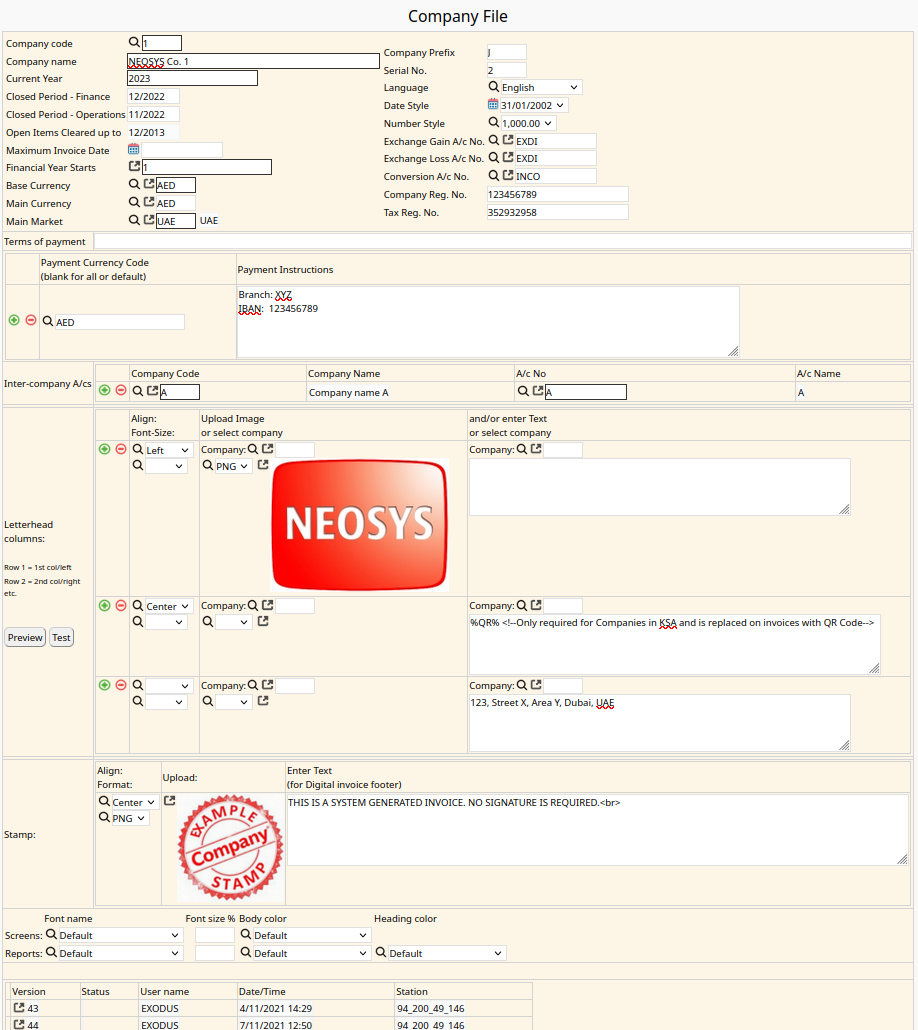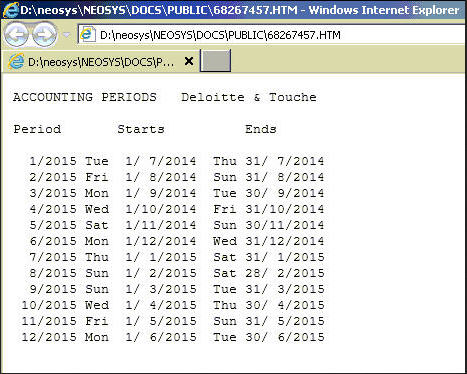Company File
Closed Period - Finance and Closed Period - Operations
Closed Period - Finance prevents creation or amendment of jobs, orders or estimates prior to the closed period in the Jobs module and schedules in the Media module. Backdating supplier invoice dates are also affected by these restrictions.
Closed Period - Operations allows separate closing of operations from financial transactions. If omitted then the old Closed Period - Finance is used.
Open Items cleared upto
Shows what period open items have been clear up to. For a full record of all clearing you still need to use Support Menu, Log File and search for CLEAR
See Performing essential maintenance of NEOSYS and Clear Open Items
Maximum Invoice Date
Maximum invoice date can be restricted. This can be used to prevent invoicing in a new month or a new year until appropriate financially.
Financial Period
Standard Financial Period
The vast majority of companies financial year starts in 1st January and has 12 financial periods starting and stopping on the international calendar months.
NEOSYS also supports in ACCOUNTS ONLY mode non-standard financial periods as follows:
Calendar month periods not starting January
For example "7" means that the financial year starts on 1st July and consists of 12 financial periods starting and stopping on the international calendar months. Period 12 is 1-30 June in the following year.
Weekly periods
For example "13XWEEK,1/7,5" means that the financial year is divided into 13 periods of 4 weeks each and starts after the Friday (5) nearest to the 1st July (1/7)
You can get a table of the exact dates of each period from Maintenance mode menu (F10), Finance, Company File, F6
Exchange Gain and Exchange Loss A/c No
Postings to the exchange gains and losses accounts defined on the Company File are not allowed. Exchange Gains and Losses are automatically posted into these accounts when NEOSYS detects gains or losses on allocation of vouchers to each other and by the NEOSYS revaluation program. Since there is generally no need to perform manual postings into these accounts, and to ensure the integrity of these accounts, NEOSYS now requires that any manual postings are performed into a separate manually managed account which would have to be created manually.

